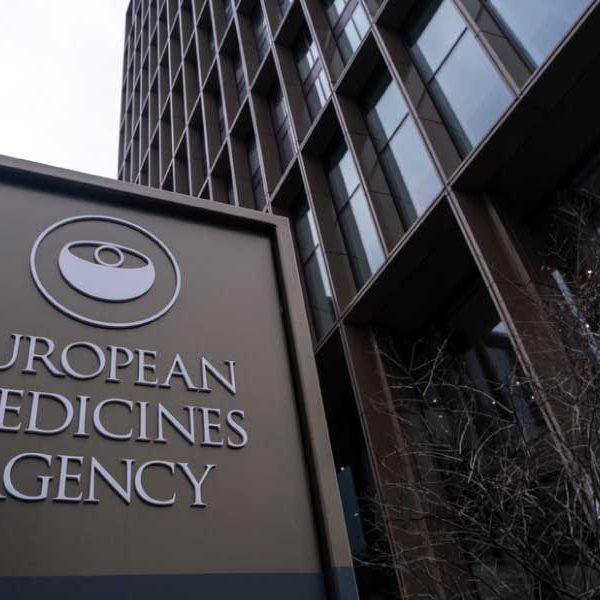Why You Should Update Your Clinical Trial Disclosure Policy for the EU Clinical Trials Regulation and ICMJE Requirements Now

The European Medicines Agency (EMA) recently announced the European Union (EU) Portal, a database for obtaining a clinical trial authorization, will be activated by the end of January 2022. The EU Portal will trigger the enforcement of the EU Clinical Trial Regulations (Regulation No 536/2014). This EU Regulation will significantly impact clinical trial registration and disclosure activities, most notably for those Sponsors who have not integrated ICMJE recommendations in their procedures given this may be applied retroactively.
Since 2005, the International Committee of Medical Journal Editors (ICMJE) recommends that medical journals reject any manuscript if an interventional study in humans has not been registered prior to recruiting participants. Additionally, the study must be registered on a registry recognized by the WHO (list of WHO compliant registries).
Journals with high impact factors frequently reject manuscripts for studies not registered before the recruitment of the first participant. The EU CT Regulation acknowledges the ICMJE requirements and will apply them to all studies, even those from outside of the EU.
In our experience, it is quite common to see Sponsors with a Clinical Trial Disclosure Policy that varies based on country. However, this is not recommended.
It is important to remember that ICMJE is not a regulation. It is a recommendation from medical journals, a non-governmental obligation to summarize. Even though most international regulations are aligned with ICMJE recommendations, not all of them are – particularly those in the US and China.
Consider these three scenarios.
Scenario 1: Studies with the first participant located in Europe
If a Sponsor starts a study in Europe, their clinical study protocol must be registered in EudraCT before the start of patient recruitment. If there is no EudraCT registration, there is no clinical trial authorization in Europe. If recruitment of the first participant is in the EU, the Sponsor is compliant with ICMJE requirements for phase 2, 3, and 4 studies, as the EU requirements and ICMJE are aligned in this type of situation.
However, phase 1 studies are different. The process is the same, but EudraCT does not publicly disclose the study’s protocol data on their public website. Since being available to the public is one of the ICMJE requirements, Sponsors must then register the phase 1 study to another registry to be compliant.
To ensure a full compliance with ICMJE requirements, Sponsors usually adapt their Clinical Disclosure Policy and register all interventional studies in ClinicalTrials.gov before the recruitment of the first participant. Alternatively, if the Sponsor chose a country-by-country policy, this could become very cumbersome and challenging to maintain. The EU CT Regulation would only future complicate these requirements for the sponsor.
Scenario 2: Studies with the first participant located in the United States
Let’s imagine a study starting in the US, for instance. US regulations (FDAA Section 801) require Sponsors to register interventional phase 2-4 studies on ClinicalTrials.gov:
- if there is a trial site in the US
- or if the study is included in an IND
- or if at least one manufacturing step is completed in the US
In the US, Sponsors are not required to register the study in ClinicalTrials.gov before the first recruitment. They can register clinical trials up until 21 days after recruiting the first participant, which is not in line with ICMJE requirements. Additionally, registration of phase 1 trials is not mandatory in the US.
ICMJE is more stringent than the US legislation. As a consequence, if a Sponsor has chosen a country per country policy, even if it is compliant with US legislation, it may already face rejection of its manuscript in prominent medical journals. In 2022, it may also face a rejection of its Clinical Trial Application in the EU as well.
Scenario 3: Studies in China
Let us imagine another case where the study starts in China. Registration in chinadrugtrials.org,cn is compulsory before the start of patient recruitment, but this registry is not recognized by the WHO.
If Sponsors do not take an additional step to register in a WHO–compliant registry before the recruitment of the first participant, the Sponsor would not be compliant with ICMJE.
EU Clinical Trials Regulation acknowledges the ICMJE requirements
With the entry in force of the EU Clinical Trials Regulation, ICMJE requirements will become a rule applicable to all studies. Indeed, in article 25, paragraph 6 of the EU Clinical Trials Regulation, the EU will no longer authorize to support a Clinical Trials Application with data generated by a clinical trial which did not comply with this ICMJE requirement.
Suppose a study starts after the end of January 2022, for instance, and is not registered in a WHO–compliant registry before the signature of the first consent (also known as first visit-first patient date). In that case, the Sponsor would no longer be able to use the data generated by this study to support a Clinical Trials Application in the EU. Pretty dissuasive, isn’t it?
Eliminate internal country-based transparency policies or face manuscript rejection
If a Sponsor continues to keep a country per country policy instead of integrating the ICMJE recommendations in its Clinical Trials Disclosure Policy, it may face a risk of manuscript rejection and a rejection of the clinical trials application for a future study in Europe.
As a final example, imagine a startup based in the US applying the country-by-country policy. It starts a phase 1 trial in the US only in February 2022. Registration is not required by US law, so it is legal to not register the study in ClinicalTrials.gov. This means, with this policy, the study could not be used by future clinical development to support a Clinical Trials Application in Europe for a phase 2 study. The start-up may then have to start the study over again and register before the first visit, first patient date.
The EU CT regulation will have a retrospective effect.
To support a Clinical Trials Application, sponsors would be able to use data generated from a study started before January 2022, but only if the trial is registered on a WHO–compliant registry or if the trial results have been published in a medical journal.
EU CT Regulation will trigger an era of full transparency in Clinical Trials that is welcome in Europe, and Sponsors should integrate ICMJE recommendations in their procedure as soon as possible, before they experience negative effects.
Email a transparency expert at info@mmsholdings.com for additional questions on this content.











